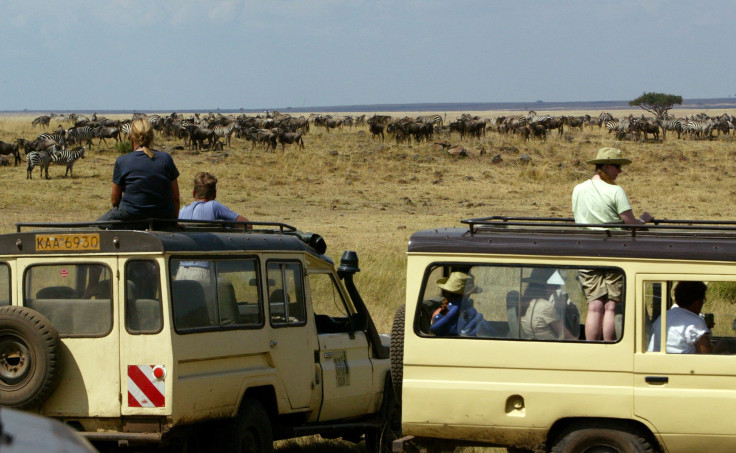Kenya Garissa College Attack: Tourists Back Away After Al-Shabab Militants Kill 148 At University

Kenya’s struggling tourism industry was dealt yet another setback after armed militants killed 148 people, most of them students, in an attack at a university last week. Many bookings were canceled after the attack, managers and owners of hotels and other tourist destinations in the East African country said.
Gunmen from the militant group al-Shabab, which is strong in Kenya’s eastern neighbor Somalia, on Thursday attacked Garissa University College, located about 120 miles from the border with Somalia. It was the worst attack in Kenya since the 1998 bombing at the U.S. embassy killed more than 200 people. Despite the fact that the country was warned of the university attack hours before it took place, authorities were slow to deploy a rapid response team.
Nineteen visitors canceled plans to stay at a game park camp in Kenya after they learned of the university attack, owner Peter Kipeno told Reuters. His camp is about 375 miles from Garissa. Along Kenya’s coast, hotels also reported cancellations. In that area, 23 hotels had already closed in the first three months of this year.
Tourism is one of Kenya’s highest sources of income, but the country’s safaris and white sand beaches have steadily drawn fewer visitors in the past several years after nearly 70 people died in a 2013 attack on Westgate Mall in Nairobi. Al-Shabab also claimed responsibility for that attack, and at the same time, it promised to keep up similar attacks until Kenya withdrew troops from Somalia. In 2014, tourist arrivals during the high season, from January to May, dropped 4 percent from the previous year.
Both the U.K. and Australia issued heightened travel warnings for Kenya late last month. The British government warned tourists not to visit certain coastal areas, and Australia cited the possibility of a terrorist attack in Nairobi. Their warnings came the same day gunmen stormed a hotel in Mogadishu, the capital of Somalia, killing at least 10 people.
Just days before the Garissa attack, Kenyan President Uhuru Kenyatta had urged Kenyans living outside the country to reassure foreigners that the country was safe for tourism. “The travel advisories being issued by our friends are not genuine,” he said.
In July 2014, a visitor from Russia was shot near a UNESCO World Heritage site in Kenya, although the incident was eventually ruled a robbery. A German tourist was shot and killed just three weeks after that in an open market in Mombasa.
© Copyright IBTimes 2025. All rights reserved.






















